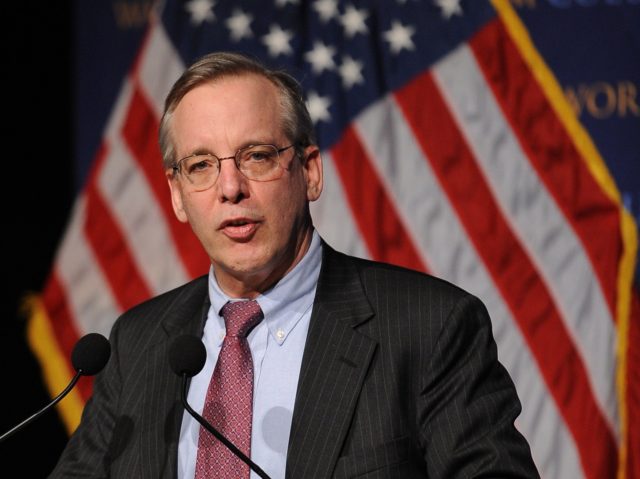The Federal Reserve will likely raise interest rates much higher than markets currently anticipate, former New York Fed President William Dudley writes in a Bloomberg op-ed published Monday.
“Not only will the Fed have to raise rates, but rates are likely to go much higher than investors anticipate,” Dudley, now a senior research scholar at Princeton University’s Center for Economic Policy Studies, predicts.
Many Fed officials, most prominently Fed chair Jerome Powell, insist that the central bank will keep rates low for a long-time. Markets appear to have confidence in this position, in part because Fed officials have said they will tolerate periods of above-target inflation on the path to bringing the long-run average of inflation to two percent after years of undershooting.
Dudley argues that this will eventually mean the Fed will have to hike interest rates above the “neutral rate” in order to bring inflation back down toward the target.
The central bank has made it abundantly clear that it won’t start raising rates until inflation is expected to exceed its 2% target for some time — which, in my view, means it will probably have pushed the economy past maximum employment, and then will need to make monetary policy tight to cool the economy down. How far it must go will depend on what happens with inflation, which is difficult to predict with any precision. That said, it’s not hard to imagine the Fed taking its short-term target rate to 3% or even higher.
If inflation peaks at 2.5 percent, the Fed might need to target three to 3.5 percent, Dudley writes. If inflation rises to 3 percent, the target could go as high as four percent to 4.5 percent, Dudley argues.
“This might sound very high, but only if you’re really young: During the tightening cycle that preceded the 2008 financial crisis, the federal funds rate peaked at 5.25 percent,” Dudley writes.
A new economic slump—or perhaps a pandemic double-dip—could keep rates down but Dudley sees that as unlikely.
“The speed of the post-pandemic recovery, together with accommodative monetary and fiscal policy, will limit the opportunities for an adverse economic shock to interfere,” Dudley writes.

COMMENTS
Please let us know if you're having issues with commenting.